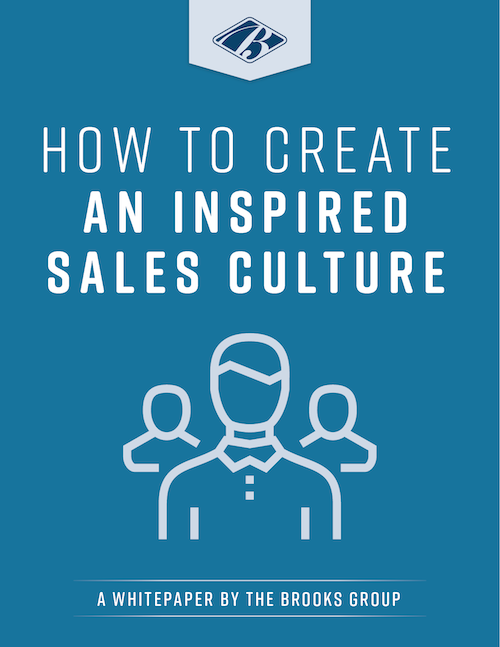Sales Coaching Starts with Feedback
We’ve all had those moments when a colleague or manager approached us with what they called “constructive feedback” – then unloaded on us with a list of grievances didn’t seem at all to be constructive.
That said, feedback is an indelible part of sales coaching – and when it comes to evaluating and sharing perspectives with your sales team, finding the right venue and message for your reflections is absolutely critical.
So, how can you make feedback a truly collaborative, progressive – and yes, constructive – part of your commitment to organizational improvement? As the director of talent management consulting here at The Brooks Group, I have found these four keys to be most useful in ensuring your feedback lands with the desired intent:
Objective Coaching
Clarity is important when delivering feedback, as a means of avoiding confusion about what you’re sharing. That said, it’s critical to deliver an objective assessment, finding the balance between the glowingly positive and the shockingly negative. A feedback session will almost always trigger some sort of an emotional response in the person receiving the critique – and though it’s impossible for us to manage how the person takes what we are saying, we can do our best to maintain objectivity as a means of keeping the channels of communication unblocked.
One way to avoid surprises is to conduct regular assessments. I train a variety of sales managers on how to conduct assessments that can enlighten us on a variety of traits of our sales professionals. Among the questions we’re trying to uncover is whether the individual can accept feedback. If the assessment reveals that they are not particularly adept at receiving input, we can work with individuals to prepare them for the expectation that feedback will always be a part of our coaching process. To that point, feedback should be a dynamic aspect of your commitment to continuous improvement. If you get feedback from a client that a particular interaction was not aligned, don’t wait – jump on a call and get the sales professional’s perspective on how it went. It will help sales pros approach their work with eyes wide open, and a clear understanding of boundaries and expectations within your organization.
Direct Feedback
In feedback sessions that I’ve observed, I’ve sometimes seen the manager talking too much, and explaining too much. In my view, there’s a fine balance between giving them just the information needed to convey the message, and droning on and on, which could add to the level of unease. It’s important to use an “economy of words” philosophy when delivering feedback – explain it well, but only explain it once. The more words you add, the more you risk creating the potential for confusion. Try to be concise, succinct and clear in your feedback, while offering an earnest opportunity for two-way reflection: How do you feel about what I shared? What are your thoughts?
Observant Sales Management
Watching your team members doing what they do best is a great way to offer insightful feedback. I work with several sales organizations that use the concept of a “ride-along” as a useful tool. You’ll likely be accompanying your team members into a customer’s office, and watching them as they interact in their “natural habitat.” Prior to the appointment, establish the benchmarks that you’ll be observing, so there’s agreement on outcomes; and, during the client meeting, resist the temptation to offer on-the-fly feedback during the interaction. Once the appointment is over, huddle and reflect on how the appointment measured up to your pre-set expectations, metrics, and other details of what you were looking for. You might find it helpful to use an objective evaluation tool, such as our Joint Call Audit, to help focus your observations and provide a framework for your feedback.
Be Prescriptive
The “ride-along,” and other activities – like videotaping your sales professionals during a role-playing interaction; or reviewing a recording of a sales call – can provide the basis for turning feedback into action steps that can foster lasting change. Perhaps consider using these recordings and role-playing exercises as an opportunity to conduct a sort of “360-degree feedback session” – empowering your entire team to observe and provide feedback to each other, then sharing that feedback in an open session.
Ready to make feedback something to celebrate – and not dread – as part of your sales coaching efforts for your sales organization? Perhaps we can help.
For more than 40 years, The Brooks Group has partnered with sales organizations around the globe—helping them to hire, train, coach, and develop salespeople and sales managers to reach maximum performance levels.
If we can help you set your team up for consistent sales success, let’s start a conversation.
How to Create an Inspired Sales Culture
The best-of-the-best sales leaders do something that others do not—they inspire their teams. But creating a sales culture that inspires requires intentional and thoughtful culture building. Find out what it takes to build an inspired sales culture from the ground up.






